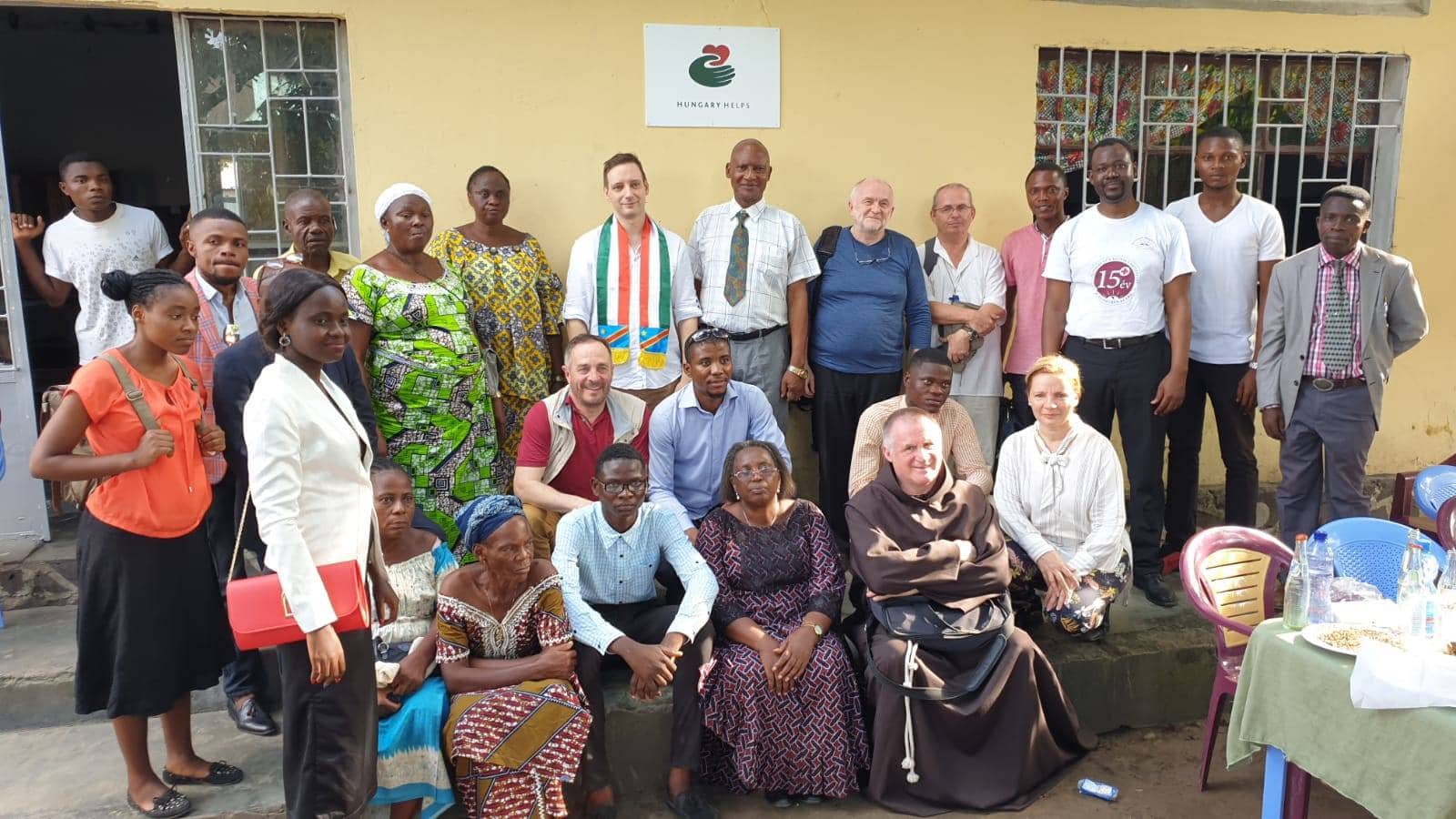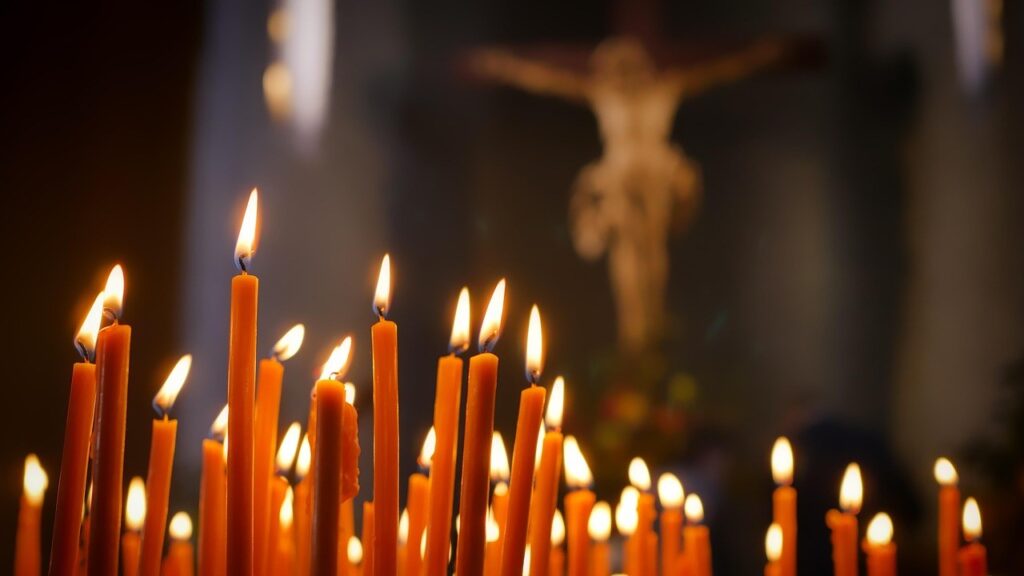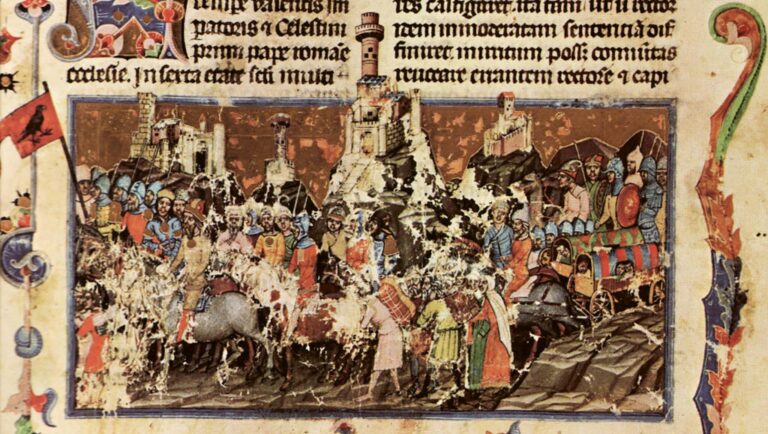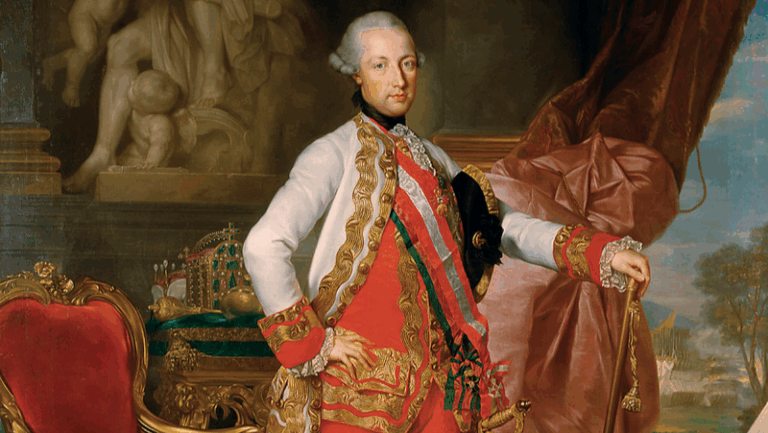The persecution of Christians is one of the most significant but least discussed human rights crises in the world today. Through various methods of discrimination against Christians, deprivation, or violation of freedom of religion and freedom of conscience affects around 340 million people.1 This deprivation of human rights is not a new phenomenon. It shall suffice to remember the persecution of Christians in Roman history under the emperors Nero and Diocletian, or the age of Enlightenment, and the French Revolution, when assets of the church were confiscated and priests were arrested en masse. A symbolic scene of the persecution of Christians in the early modern period was when stones from Notre Dame in Paris were taken away, sculptures were beheaded, and the building itself was repeatedly looted.2 The anticlericalism of totalitarian ideologies and regimes which emerged in the twentieth century also left deep wounds on the body of the church. Organized churches in Eastern Europe were oppressed or banned, monastic orders were disbanded, priests and monks were imprisoned, hauled to labour camps, or killed. Victims of the totalitarian rampage included, among others, the honourable Cardinal József Mindszenty in Hungary, the Blessed Bishop Zoltán Meszlényi, the Blessed János Brenner, Blessed Bishop Vilmos Apor, the Blessed Sára Salkaházi, and Bishop Áron Márton in Transylvania. Nor has such tragic persecution diminished in the twenty-first century. Christian-persecuting jihadists emerged and gained ground with political Islam, followed by other anti-Christian political-religious movements.
Although Christianophobia has been assuming ever more violent forms in the West as well, the lives of Christians in crisis zones of the developing world are much harder, as they are often exposed to life-threatening physical persecution, from discrimination embedded in the customary laws of a society, or even in civil law, through terrorist attacks, to violent atrocities which sometimes reach genocidal levels. Christian people living in Africa, the Middle East, and in certain parts of Asia are facing the spectre of being condemned to a second-rate citizenship or systemic elimination. Pro-migration critics of the Hungarian government are making false accusations, citing ‘lack of solidarity’ and the ‘curtailing of human rights’, while ignoring or keeping quiet about the fact that our country plays an active role in crisis zones with its policy of providing aid locally to those in need. We oppose illegal migration, as it is dangerous for all affected parties, while we support remaining in the homeland or returning there with dignity when the circumstances permit. In addition to providing general support for communities living in crisis zones, the most vulnerable, abandoned communities, including those affected by persecution due to their religion, have special importance in the humanitarian agenda of Hungary. The Hungarian government was among the first administrations to recognize what is also stated in the British Foreign Ministry’s report examining response to persecution: the most persecuted religion of the world is Christianity. The overwhelming majority, almost 80 per cent of those suffering religious persecution are Christians.3 This also means that the persecution of Christians is one of the most significant yet most concealed humanitarian and human rights crises in theworld today.
To improve the situation of persecuted Christians, the Hungarian government was the first in the world to establish a special administrative organ, the State Secretariat for the Aid of Persecuted Christians,4 and it launched the Hungary Helps Program (HHP)5 in 2017, within the framework of which it tries, in cooperation with church leaders in the areas in need, to alleviate the deprivation of those in distress. On 14 April 2019, the non-profit Hungary Helps Agency was set up under the auspices of the Prime Minister’s Office, the main task of which is the administration and follow-up of aid provided within the framework of the HHP.
The mission of HHP is to help distressed communities and their members to stay in their homelands, by protecting human dignity and human rights
In addition, it intends to coordinate the international aid projects of Hungary in crisis zones and in developing countries, in the spirit of Christian cultural values. We help persecuted Christians in particular, since they are the most vulnerable religious group. The support we provide, however, is not exclusive: we deliver aid to every community in need, regardless of religious orethnic background. We firmly believe that communities in a crisis situation due to religious, social, or armed conflict should be given aid and assistance in their own social environments, instead of ‘importing’ these conflicts to Europe. The essence and the underlying principle of the Hungarian model lie exactly in this approach. Most of those reaching our continent as migrants find it extremely difficult to fit into mainstream society due to culture shock and language issues.6 In such an environment, the emergence of parallel societies and social tensions is unavoidable, and the inclination to radicalization rapidly develops among non-Christians.
Our position is that those who are forced to flee should not be incentivized to stay away from their countries for a long time, and instead we should help them to return to their homes as soon as possible. In this spirit, our efforts concerning refugees always serve to assist their return home, thereby strengthening their local communities. We have launched a scholarship programme for youth living in crisis zones as members of minorities,7 and those receiving the study grants can earn their degrees or even obtain their PhDs at fourteen different universities in Hungary, so that after returning to their home countries they could make a living utilizing the high-level knowledge they obtained and help rebuild and revive their own countries. In addition, Hungarian churches organize pastoral programmes for the several hundred students on scholarship in order to help them preserve their religious and cultural identities. Pope Francis himself received our scholarship students at an audience held on St Peter’s Square in October 2018.
Since the establishment of the HHP in 2017, Hungary has supported 172 humanitarian programmes and rehabilitation projects in 48countries, at a total cost of HUF 17.7 billion. By ensuring the basic conditions required for people to stay in place, the HHP was made available to over 250,000 people, helping them to return to their home countries or stay at home, or to safeguard their lives in catastrophic circumstances.
Africa
The objective of the program is to support education, healthcare, rehabilitation, accommodation, and church infrastructure of communities in crisis. In this spirit, within the framework of the HHP, several schools (e.g. the Newill Academy in Ghana8) and health institutions (e.g. the expansion and procurement of medical equipment for the Centre Ophthalmologique St Raphaël inMbuji-Mayi in the Democratic Republic of the Congo9) have been refurbished, reconstructed, or erected and equipped, and many life-saving shipments of medications have been delivered.10 In addition, the HHP also provides aid for infrastructure development, such as installing a water supply for the women’s home in Bamako (Mali),11 for ensuring basic preconditions for a dignified life (e.g. the implementation of water supply points12), for water management and agricultural developments (e.g. supporting sustainable agriculture through the construction of the agricultural department of Tangaza University in Kenya13), and for the rebuilding of church buildings and chapels destroyed by war or terrorists (the rebuilding of the Saint John Community Chapel in Addis Ababa in Ethiopia). Internal migration poses the greatest challenge in several countries in our geographical focus area. It is often the case that a given family or community is forced to relocate within the country, fleeing violence and armed conflict, trying to find a safe place. Our Program also targets them, and joins forces with local ecclesiastical organizations (e.g. dioceses), to provide aid to people forced to leave their homes.14
The Middle East
In the Holy Land where Jesus lived and the first Christian communities emerged, in war-torn areas of the Middle East, Syria, and Iraq, and in some other parts of Asia, the situation of Christians is critical, as ancient Christian communities are trying to survive in the midst of various majority religions. This would be almost impossible to accomplish without brotherly help, i.e. targeted humanitarian aid. Such communities are characterized by the ecumenism of blood and violent persecution: the Chaldean Catholics of Babylonia, the Calvinists of Iraq, and the Syrian Orthodox believers of Antiochia are all followers of Christ in need, who are even willing to suffer martyrdom for their faith. Apart from emigration, internal migration is also present in these areas, as everyone seeks to move away from war zones, even if it means having to live in a refugee camp in a distant corner of their country. Despite the fact that refugee camps are supervised by international organizations, Christian families frequently suffer physical abuse and sexual assault (even in refugee camps in Germany!), since Christian fugitives are often locked in together with those whom they are fleeing.15 To mitigate inhuman situations of this kind, and in order to promote the return of refugees to their countries, reconstruction works are ongoing, with the support of the HHP, in the devastated Syrian city of Homs, for instance, as a result of which it has become possible for hundreds of families to return to their homes.16 Meanwhile in Erbil (Iraq), the Virgin Mary Primary School has been constructed, where the children of Christian, Muslim, and Yazidi internal refugees can learn together, without regard to religious affiliation.17 In order to ensure that those who return to their homes can maintain their Christian identity, Hungary also contributes to the reconstruction of their houses of prayer destroyed by war or terrorism—this is how close to seventy church buildings in Lebanon, or the Armenian apostolic church and community home in Kurdistan, Iraq, could be refurbished.18
Support was also provided by the HHP for the preservation and worthy presentation of the world’s universal Christian heritage through the extension of the Terra Sancta Museum in Jerusalem,19 which displays archaeological finds of special significance for Christianity from the first millennium.
Europe
There is no need to travel so far afield to see palpable evidence of Hungarian solidarity. Through the HHP, Hungary also supports Christian communities and thus society as a whole in Europe. We provided aid for the reconstruction of schools (e.g. the Petar BarbarićCatholic Elementary School and Secondary School in Bosnia) and church buildings damaged by earthquakes (e.g. the Benedictine monastery in Norcia, damaged by the 2016 earthquake in Italy20), and we have shipped humanitarian aid—food, medication, hygienic products, and container homes—to disaster areas.21 Armenian Christians also received Hungarian help in rehabilitating civilians forced to leave their homes in Armenia due to the Nagorno–Karabakh conflict, as well as food and hygienic supplies.22
Bis dat, qui cito dat—He who gives swiftly gives twice, as the Latin saying goes. As demonstrated by the examples above, the HHP not only provides aid for long-term construction projects, but also offers prompt assistance as a ‘rapid response humanitarian unit’ in the mitigation of the aftershocks of disasters and the alleviation of immediate distress. To mention only two major disasters in the most recent period, the explosion in Beirut in 202023 and the tornado in the Czech Republic this year24 devastated thousands of people’s homes in a matter of seconds. In the case of such force majeure events, it is crucial to provide aid to the victims as soon as possible, in a matter of days at most, to ensure their survival, to mitigate damage in a timely manner as well as to facilitate reconstruction. The effectiveness of the Hungarian model is demonstrated by the fact that the HHP has responded to the challenges cited above withexemplary promptness.
It can be seen from the above that, in contrast with the claims made in and by mainstream media, Hungary is anything but xenophobic. On the contrary, within the framework of the HHP, we support the preservation of communities and cultures wherever we can, but we reject uncontrolled and illegal immigration as firmly as possible, in order to protect our European and Hungarian way of life and religious heritage.
The protection of cultural identities is also crucial in our closer geographical environment, especially because we can witness the relativizing of Christian values and their extrusion from public spaces, and even Christianophobia, in an increasing number of spots in Western Europe. This includes legal discrimination based on matters of conscience. In certain Western European countries, it is possible for the employer to dismiss employees for wearing a religious symbol—the cross, mostly—without recourse to legal redress.25And it also includes acts of violence as over the last few years the number of atrocities suffered by Christian and Jewish communities has increased sharply in Western Europe. It is telling that Jewish religious leaders have recommended to their congregations in the synagogues to avoid wearing yarmulkes or other items of traditional clothing in the street—for their own safety.26 Brutal acts are committed against Christians also in Europe, including the murder of Father Jacques Hamel in Rouen,27 and the violent death of FatherRoberto Malgesini in Como, Italy.28 In addition, even though it is denied by liberal opinion leaders, no-go areas have appeared in major cities in the West. In such neighbourhoods, Muslim residents are the majority, and although most members of their communities are peaceful, their way of life is often dictated by a fundamentalist interpretation of sharia (influenced by the radicals among them) without any sign of willingness to integrate and without the slightest concern for the rules and laws of the host nation. On a spiritual level, Western Europe has been giving up its Christian values and roots, one after the other, removing religious symbols from public spaces and banishing Christian customs. In Bruges, Belgium, the Christmas Market was renamed Winter Market, while other cities are racing to remove nativity scenes and Christmas trees from their streets.29 In response to spiritual persecution of Christians, Hungary—despite liberal headwinds—continues to speak out with regard to the protection of Christian values and freedom of conscience at all possible forums, including the European Parliament.
The protection of cultural identities is also crucial in our closer geographical environment, especially because we can witness the relativizing of Christian values and their extrusion from public spaces, and even Christianophobia, in an increasing number of spots in Western Europe
This includes legal discrimination based on matters of conscience. In certain Western European countries, it is possible for the employer to dismiss employees for wearing a religious symbol—the cross, mostly—without recourse to legal redress.25And it also includes acts of violence as over the last few years the number of atrocities suffered by Christian and Jewish communities has increased sharply in Western Europe. It is telling that Jewish religious leaders have recommended to their congregations in the synagogues to avoid wearing yarmulkes or other items of traditional clothing in the street—for their own safety.26 Brutal acts are committed against Christians also in Europe, including the murder of Father Jacques Hamel in Rouen,27 and the violent death of FatherRoberto Malgesini in Como, Italy.28 In addition, even though it is denied by liberal opinion leaders, no-go areas have appeared in major cities in the West. In such neighbourhoods, Muslim residents are the majority, and although most members of their communities are peaceful, their way of life is often dictated by a fundamentalist interpretation of sharia (influenced by the radicals among them) without any sign of willingness to integrate and without the slightest concern for the rules and laws of the host nation. On a spiritual level, Western Europe has been giving up its Christian values and roots, one after the other, removing religious symbols from public spaces and banishing Christian customs. In Bruges, Belgium, the Christmas Market was renamed Winter Market, while other cities are racing to remove nativity scenes and Christmas trees from their streets.29 In response to spiritual persecution of Christians, Hungary—despite liberal headwinds—continues to speak out with regard to the protection of Christian values and freedom of conscience at all possible forums, including the European Parliament.
Finally, it is important to reiterate the principle of cultural and brotherly solidarity: Christian communities, throughout the world, are members of the same family, because as Paul the Apostle said, ‘Just as a body, though one, has many parts, but all its many parts form one body’ (1 Corinthians 12:12). Just as the human body is unable to survive if its parts are permanently ailing, neither the church nor Christianity can survive if brothers do not show solidarity, and if the more fortunate fail to provide help for those in need. With common sense and compassion: this is the notion guiding Hungary in fulfilling its humanitarian and Christian moral obligation to offer its much needed and effective assistance to Christians persecuted or in distress throughout the world, and also to communities of other faiths who suffer together with them.
Translated by Balázs Sümegi
NOTES
1 Open Doors, World Watch List 2021, https://www. opendoors.org/en-US/persecution/persecution-trends/.
2 MTI, ‘180 évig épült a Notre Dame’ (The Construction of Notre Dame Took 180 Years), https://mult-kor. hu/20121212_180_evig_epult_a_notre_dame, accessed 19 July 2021.
3 Bishop of Truro’s Independent Review for the Foreign Secretary of FCO Support for Persecuted Christians, https://christianpersecutionreview.org.uk/report/.
4 Zsolt Semjén, ‘Beszéd a keresztény kommunikációs szakemberek budapesti fórumán’ (Speech at the Budapest Forum of Christian Communication Experts, 4 September 2019, https://www.youtube.com/ watch?v=n61lG2mudEs.
5 ‘244/2017. (VIII. 28.) Korm. rendelet. a Hungary Helps Programról’ (Government Decree 244/2017 (28 August) on the Hungary Helps Program), https://net.jogtar.hu/ jogszabaly?%20docid=A1700244.KOR, accessed 19 July 2021.
6 Richárd Zagyva, ‘A Katolikus Karitász lehetőségei
és szerepvállalása 2018-ban a keresztény közösségek támogatásának előmozdítása érdekében’ (Possibilities and Activities of Catholic Caritas in 2018 in Order toPromote the Support of Christian Communities), in József Kaló and Loránd Ujházi, eds, Budapest-jelentés a keresztényüldözésről 2018 (Budapest Report on the Persecution of Christians) (Budapest: Dialóg Campus, 2018), 226.
7 ‘20/2017. (VI. 1.) Korm. rendelet az „Ösztöndíjprogram Keresztény Fiataloknak” elnevezésű ösztöndíjprogramról és a felsőoktatásban részt vevő hallgatók juttatásairól és az általuk fizetendő egyes térítésekről szóló 51/2007. (III. 26.) Korm. rendelet módosításáról’ (Government Decree 20/2017 (1 July) on the ‘Scholarship Programme for Christian Youth’ and the Amendment of Government Decree 51/2007 (III. 26.) on Allocations to and Payments from Students in Higher Education), https://net.jogtar.hu/jogszabaly?docid=A1700120.KOR, accessed 19 July 2021.
8 HHP, ‘Sikerrel zárult a ghánai missziós út’ (The Ghana Mission was Concluded Successfully), https:// hungaryhelps.gov.hu/2021/07/05/sikerrel-zarult-a- ghanai-misszios-ut/, accessed 20 July 2021.
9 HHP, ‘Magyar segítség Afrika szívében’ (Hungarian Help in the Heart of Africa), https://hungaryhelps. gov.hu/2021/05/08/magyar-segitseg-afrika-sziveben/, accessed 20 July 2021.
10 HHP, ‘Hungary Helps in the Fight against Malaria’, https://hungaryhelps.gov.hu/2021/04/23/hungaryhelps- in-the-fight-against-malaria/, accessed 20 July
2021.
11 HHP, ‘Tiszta vízzel segítjük a járványok megfékezését Maliban’ (We Provide Help in Stopping Epidemics in Mali), https://hungaryhelps.gov.hu/2021/05/12/tiszta- vizzel-segitjuk-a-jarvanyokmegfekezeset-maliban/, accessed 20 July 2021. HHP, ‘Hungary is Doing a Lot to Make Our Planet More Livable through the Hungary Helps Program’, https://hungaryhelps.gov.hu/2021/04/22/hungary-is-doing-a-lot-to-make-our-planet-more-livable-through- the-hungary-helps-program/, accessed 20 July 2021.
12 HHP, ‘Az éhezés elleni küzdelemben fontos szerepet játszik Magyarország’ (Hungary Has an Important Role in the Fight against Famine), https://hungaryhelps.gov. hu/2021/04/12/az-ehezes-elleni-kuzdelemben-fontos- szerepet-jatszik-magyarorszag/, accessed 20 July 2021.
14 HHP, ‘Az éhezés elleni küzdelemben fontos szerepet játszik Magyarország’.
15 Mariann Őry, ‘Helyben kell segíteni’ (Help Shall Be Provided Locally), Magyar Nemzet (18 May 2020), https://www.magyarhirlap.hu/kulfold/20200518- helyben-kell-segiteni, accessed 20 July 2021.
16 HHP, ‘Szíriai menekültek hazatérését teszi lehetővé a Hungary Helps Program’ (The Hungary Helps Program Makes It Possible for Syrian Refugees to Return to Their Country), https://hungaryhelps.gov.hu/2021/05/11/ sziriai-menekultek-hazatereset-teszi-lehetove-a- hungary-helps-program/, accessed 20 July 2021.
17 HHP, Azbej Tristan, ‘A Hungary Helps Program példaként szolgálhat más kormányoknak is’ (The Hungary Helps Program Can Be an Example for Other Governments as Well), https://hungaryhelps.gov. hu/2021/03/10/azbej-tristan-a-hungary-helps-program- peldakent-szolgalhat-mas-kormanyoknak-is/, accessed 20 July 2021.
18 Prime Minister’s Office, ‘Az Örmény Apostoli Egyház közel-keleti újjáépítési tevékenységét támogatja a Hungary Helps Program’ (The Reconstruction Effort of the Armenian Apostolic Church is Supported by the Hungary Helps Program), https://hungaryhelps.gov. hu/2020/11/27/az-ormeny-apostoli-egyhaz-kozel-keleti- ujjaepitesi-tevekenyseget-tamogatja-a-hungary-helps- program/, accessed 20 July 2021.
19 HHP, ‘Magyar segítség a szentföldi közösségeknek’ (Hungarian Help for Communities in the Holy Land), https://hungaryhelps.gov.hu/2021/05/18/magyar- segitseg-a-szentfoldi-kozossegeknek/, accessed 20 July 2021.
20 MTI, ‘Head of Benedictine Monastery of European Significance Which Collapsed during 2016 Earthquake Thanked Hungary for Its Financial Assistance’, https:// miniszterelnok.hu/head-of-benedictine-monastery- of-european-significance-which-collapsed-during- 2016-earthquake-thanked-hungary-for-its-financial- assistance/, accessed 20 July 2021.
21 Erika Besze, ‘A szomszéd országban élőkért is felelősek vagyunk – adományokat vittünk Sziszekre’ (We Are Also Responsible for People Living inNeighbouring Countries—We Took Donations to Sziszek), https://karitasz.hu/hirek/a-szomszed- orszagban-elokert-is-felelosek-vagyunk-adomanyokat- vittunk-sziszekbe, accessed 20 July 2021.
22 HHP, ‘Gyorssegéllyel támogatta az örmény menekülteket a Hungary Helps Program’ (The Hungary Helps Program Supported Armenian Refugees
with Emergency Aid), https://hungaryhelps.gov. hu/2021/05/25/gyorssegellyel-tamogatta-az-ormeny- menekulteket-a-hungary-helps-program/, accessed 20 July 2021.
23 MTI–Hungary Today, ‘Hungary to Donate EUR 1 Million to Lebanon Blast Victims’, https://hungarytoday. hu/hungary-help-lebanon-beirut/, accessed 20 July2021.
24 HHP, ‘Azonnali gyorssegélyt biztosít a Hungary Helps Program Csehországnak’, (The Hungary Helps Program Provides Immediate Emergency Aid to the Czech Republic), https://en.s4c.news/2021/06/25/hungary- helps-offered-help-to-czech-republic-after-tornado/, accessed 20 July 2021.
25 ‘Misszió’, Vajdaság Ma, https://www.vajma.info/cikk/ valasz/118/Misszio.html, accessed 20 July 2021.
26 ‘Juden wollen keine Opfer sein – und keine Minderheit’, Süddeutsche Zeitung (16 August 2016), https://www.sueddeutsche.de/politik/antisemitismus- in-berlin-wie-der-antisemitismus-den-alltag-berliner- juden-praegt-1.3119007-2, accessed 20 July 2021.
27 Adam Nossiter and Hannah Olivenness, ‘Jacques Hamel, 85, a Beloved French Priest, Killed in His Church’, The New York Times (27 July 2016), https:// www.nytimes.com/2016/07/27/world/europe/jacques- hamel-85-a-beloved-french-priest-killed-in-his-church. html, accessed 20 July 2021.
28 Hannah Brockhaus, ‘Catholic Priest Stabbed to Death in Italy Known for his Care of “the least”’, https://www. catholicnewsagency.com/news/45825/catholic-priest- stabbed-to-death-in-italy-known-for-his-care-of-the-least, accessed 20 July 2021.
29 Robert Spencer, Belgium: ‘Brugge Christmas Market Renamed Winter Market; Christmas “Could Offend Other Beliefs”’, https://www.jihadwatch.org/2018/10/belgium-brugge-christmas-market-renamed-winter- market-christmas-could-offend-other-beliefs, accessed 20 July 2021.








